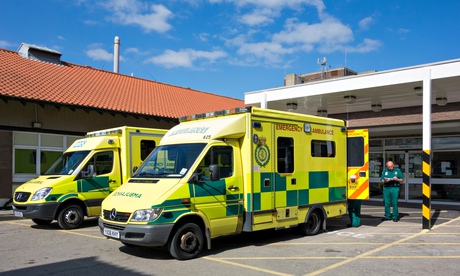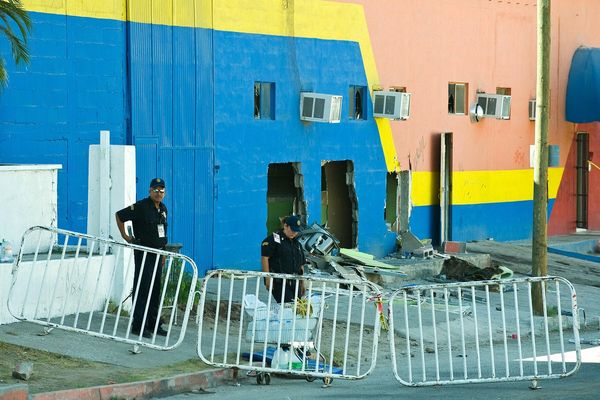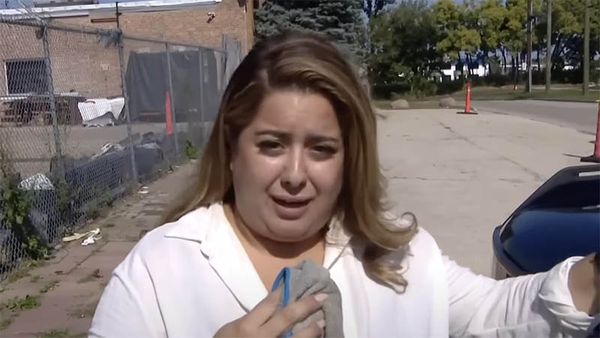
Charity volunteers are stepping in to help 29 accident and emergency departments that are under the most pressure, as NHS England struggles to cope with the growing demand for care and an unprecedented squeeze on its budget.
Under the scheme announced Thursday, Age UK, Red Cross and the Royal Voluntary Service will provide 700 volunteers for 12 weeks for A&E units in England.
The charities, which have received a £1.2m government grant, will provide help in three areas: at home, to support older people and prevent unnecessary admissions to hospital; in casualty, to support medical teams to secure early discharge of patients who do not need admission on medical grounds, but are prevented from returning home for social care reasons; and in wards, to secure early discharge of patients who do not need a bed for medical reasons.
A key reason A&E departments are coming under pressure is that a fifth of hospital beds are occupied by older people who need social rather than medical care.
“Too many beds in A&E are filled by people who aren’t ill, and who need social care not medical attention,” said Sir Stephen Bubb, head of the Association of Chief Executives of Voluntary Organisations. “Charities already help with this and I’m pleased to have agreed this action plan for them to support 29 hospitals under pressure.”
The initiative builds upon seven pilot schemes backed by a £2m fund announced earlier in the year. Bubb said Acevo, which brokered Thursday’s initiative, was approached by the government last year and asked what charities could do to relieve pressure on the NHS.
“The government did not take it up last winter,but as problems mounted up they realised could do with support” Bubb said. “‘Is there anything you can do in a targeted fashion?’ they asked and we were given three days to come up with a plan.”
Hospital A&E units recorded their worst ever performance in the week before Christmas as NHS emergency care services struggled to deal with an unprecedented number of patients. In January, over a dozen hospitals declared major or significant incidents, which meant cancellation of planned operations or asking people to come to A&E only in an extreme emergency.
Bubb said some within the NHS were sceptical of what charities could do, while others were more receptive. He said: “Someone very senior said hospitals did not need do-gooders wandering around casualty getting in the way of doctors. That represents an old-fashioned view and a lack of understanding of what we do. Some doctors and nurses can’t be happier.”
The volunteers will consist of a mix of paid professional charity staff and trained volunteers – not just people to offer tea and sympathy. Part of the approach will be preventive. Volunteers will help frail or older people by doing their shopping or taking the rubbish out in icy weather to avoid accidents. As for after emergency treatment, volunteers will help patients return home safely and make sure there is food in the fridge – relieving pressure on social care. The 29 hospitals have been picked out by the NHS.
Bubb said there was a huge payback for such a small investment and that the scheme was better than a system where hospitals are paying enormous amounts of money for locum doctors. NHS England’s bill for agency staff has risen to £2.6bn a year because of hospital trusts’ difficulty in recruiting and retaining enough doctors and nurses, the public accounts committee disclosed this week.
Acevo has ambitions for a national programme eventually.
“Over the next 12 weeks we’ll get hard evidence to show how charities can support the NHS for the long-term,” said Bubb. “We’ll use the evidence to make sure charities become a long-term part of NHS plans.”
In a bleak assessment of the NHS, the King’s Fund, the influential thinktank, said last month the NHS is “creaking at the seams” with problems spreading from A&E units to other parts of hospitals, forcing patients to wait longer for cancer treatment and planned operations.
The 29 A&E departments are: Aintree, Barking, Havering and Redbridge University Trust, Barts Health Trust, Calderdale and Huddersfield, Cambridgeshire, County Durham/Darlington, East Cheshire, Heart of England, Hull, Imperial College Healthcare Trust (London), Kettering, Kings College Hospital Trust, Lancashire, Lewisham and Greenwich Hospital Trust, London North West Healthcare Trust, Mid-Essex, Northamptonshire, Oxford University Hospital Trust, Peterborough, Royal Cornwall Hospital Foundation Trust, Shrewsbury and Telford, Stockport, Taunton and Somerset, North Bristol Trust, University Hospitals Bristol Foundation Trust, Weston, Wigan, Wrightington and Leigh, Worcestershire, and Yeovil.







